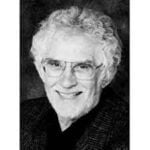Results Achieved With Two Groups of Subjects Who Underwent Treatment by Regression Therapy: 1998 – Herminia Prado Godoy, N. S. Carmalho, Lucia T. Maeda (Is.18)
by Herminia Prado Godoy, N. S. Carmalho, Lucia T. Maeda
 Abstract
Abstract
This work presents the results achieved by Regression Therapy treatment on two groups of subjects. The same procedures were applied on the two groups. Treatment consisted in performing eight psychotherapeutic sessions. Anamnesis was conducted during the first session, with a listing of problems; the second session was set aside for the establishment of the therapy’s contract and listing of grievances: emotional, physical, mental and thoughts, related to the problem chosen for therapy. From session three to seven, sessions were held using those regressive techniques adequate to the problem accessed. The closing of the case was made in the eighth session. Most of the subjects were female, holders of … Read the rest





 The technique of rescripting is not one that I use, and I have never had a clear explanation of its benefits, although I have discussed it with colleagues who use the method. As I understand, rescripting grows out of quantum physics and current thinking that all time exists now; there is no past, present or future, there is only the eternal Now.
The technique of rescripting is not one that I use, and I have never had a clear explanation of its benefits, although I have discussed it with colleagues who use the method. As I understand, rescripting grows out of quantum physics and current thinking that all time exists now; there is no past, present or future, there is only the eternal Now.